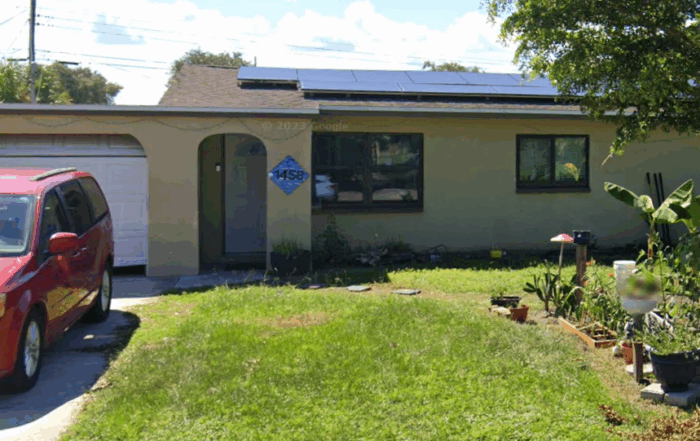
Who is a Private Lender? Why Every Real Estate Investor Needs to Understand Their Mindset
When it comes to real estate investing, understanding the different financing options available is critical. One such option, often misunderstood, is private lending. Who exactly is a private lender, and why is it so important for investors to know how they think before approaching them for a loan? This article takes a deep dive into the world of private lending, shedding light on who these lenders are, how they operate, and why investors need to get inside their heads to secure financing.
Who is a Private Lender?
A private lender is typically an individual or a group of individuals who have accumulated enough wealth to lend money, often secured by real estate, rather than invest in traditional vehicles like stocks or bonds. These lenders are more flexible than institutional lenders but are also more cautious, driven by their need for a higher return on their investment.
Private lenders often come from backgrounds that make them savvy in real estate. Interestingly, many private lenders start out as landlords or house flippers. This experience makes them more likely to understand the nuances of real estate investing, but it also means they are more cautious about protecting their money. They know the risks and rewards of flipping properties and managing rentals, which means they’re more strategic when it comes to loan terms, repayment schedules, and risk assessment.
Types of Private Lenders:
- Former Landlords and Flippers: These are individuals who’ve made their money through real estate and now provide loans to other investors. Their experience as investors themselves makes them valuable partners because they understand what it takes to make a deal successful.
- Investment Groups: Groups of private investors pool their money to offer loans, looking for a stable return while sharing the risk.
- Companies Specializing in Private Loans: These boutique firms operate similarly to investment groups but with more structure, often providing short-term, high-interest loans to seasoned investors.
These private lenders aren’t bound by the same strict regulations as banks, making them more flexible but also more discerning in their risk analysis.
Why Should Investors Care About How Private Lenders Think?
You might wonder, “Why does it matter how a private lender thinks? Shouldn’t I just focus on getting the loan?” This is where many novice investors go wrong. Understanding how private lenders approach deals can make or break your ability to secure financing. Here’s why:
1. Tailoring Your Proposal
Private lenders are not a one-size-fits-all solution. Each lender will have different preferences, risk tolerances, and financial goals. Some may be more interested in short-term, high-return flips, while others prefer steady, long-term buy-and-hold investments. Knowing the kind of deal that excites a particular lender allows you to tailor your proposal to their preferences, increasing your chances of success.
Would you walk into a job interview without knowing what the employer values? Of course not. It’s the same with private lending.
2. Flexible Loan Terms—If You Know How to Negotiate
Private lenders offer far more flexibility than banks, but this flexibility cuts both ways. Terms typically range from 5 to 12 months, with the option for an extension. They charge anywhere from 10-12% interest and typically 2-3 points (fees) upfront. Some lenders prefer interest-only payments, while others want a balloon payment at the end of the loan term. If you understand how they prefer to structure deals, you can propose terms that suit their needs while still benefiting your project.
Remember, most of these lenders have been landlords or flippers themselves, so they have a keen understanding of the numbers behind a deal. If you come across as organized, prepared, and realistic, they’ll be more inclined to work with you.
3. Risk and the LTV Ratio
Private lenders care deeply about the risk of a deal, and one of the key ways they assess risk is through the Loan-to-Value (LTV) ratio. Private lenders typically cap loans at 70% LTV, meaning they’ll only lend up to 70% of the property’s value. If you approach a lender asking for a loan that exceeds their LTV limit, you’re wasting everyone’s time.
Given their background as landlords and flippers, private lenders often take a hands-on approach to evaluating risk. They may use a desktop appraisal or even visit the property themselves. Many of these individuals have done their share of walkthroughs and inspections, so they know what to look for. Be prepared with accurate numbers and documentation because they’re going to want to see every detail before making a decision.
4. Understanding Points and Fees
Banks have standardized fees, but private lenders charge points—an upfront fee that’s usually 2-3% of the loan amount. This is in addition to the interest rate, which can range from 10-12%. Unlike traditional lenders, private lenders want immediate compensation for taking on higher risk. Understanding how they calculate their fees and returns allows you to present a proposal that meets their financial goals while still making sense for you as the borrower.
5. Speed and Relationships Matter
One major benefit of working with private lenders is the speed at which deals can close. Banks can take weeks, even months, to approve and fund a loan. Private lenders can often close in a matter of days. But here’s the catch: they expect you to be prepared. Private lenders don’t have time to deal with disorganized or poorly thought-out deals. If you show up with incomplete information or a vague plan, expect the door to slam shut.
Moreover, many private lenders started in real estate themselves, so relationships play a significant role. They’re not faceless institutions—they’re individuals who care about who they’re lending to. If you build a strong relationship with a private lender, they may be willing to fund future deals based on trust and past performance.
The Controversy of Private Lending: Is It Too Risky?
Private lending is not without its controversies. Critics argue that the high interest rates and fees associated with private loans can put investors in precarious financial situations, especially if the project doesn’t go as planned. Some feel that private lending is akin to predatory lending because of the short repayment windows and steep penalties for default.
The Counterargument: More Flexibility, Higher Returns
Proponents of private lending argue that it fills a critical gap in the market. Traditional banks are often unwilling to fund the kind of quick, short-term loans that real estate investors need, particularly when dealing with distressed properties or value-add opportunities. Private lenders are willing to take on more risk, and in return, they expect higher rewards. If you’re an investor who knows how to manage risk, private lending can be a powerful tool to grow your portfolio quickly.
How to Approach a Private Lender: Step-by-Step
Now that you understand the mindset of a private lender, here’s how you can approach one with confidence:
-
Do Your Homework: Before even thinking about reaching out, gather all the necessary details about your deal—property value, renovation costs, expected ARV (after repair value), rental income projections, etc. The more prepared you are, the more likely you are to get a “yes.”
-
Know Their Terms: Understand what your lender typically offers in terms of LTV, interest rates, points, and repayment options. Tailor your pitch accordingly.
-
Present a Clear Exit Strategy: Private lenders want to know how you plan to repay the loan. Whether it’s through a property sale, refinancing, or rental income, have a solid plan and communicate it clearly.
-
Be Ready for Quick Turnarounds: Private lenders expect to move fast. If you’re asking for a loan, be prepared to close quickly. That means having all your paperwork, legal documents, and due diligence ready to go.
-
Build a Relationship: Don’t approach private lenders as a one-time solution. Think of them as long-term partners. The better your relationship, the more likely they are to fund future deals.
The Future of Private Lending in Real Estate
As traditional financing becomes more difficult to obtain—thanks to stricter lending regulations and risk-averse banks—the role of private lenders in the real estate market is likely to grow. Investors who take the time to understand how private lenders think will be in the best position to capitalize on this growing trend.
Some experts predict that private lending will evolve to offer even more sophisticated options, such as profit-sharing arrangements or equity partnerships. Investors who can navigate this landscape with a clear understanding of private lenders’ motivations will be able to secure financing for deals that might otherwise be out of reach.
Conclusion: Know Your Lender, Know Your Success
At the end of the day, private lending is about relationships and understanding risk. Many private lenders started as landlords or flippers, so they know what it takes to succeed—and fail—in real estate investing. If you can present a deal that aligns with a private lender’s goals and risk tolerance, you’ll find it much easier to secure financing. By knowing how they think, you not only increase your chances of getting a loan, but you also set yourself up for long-term success in real estate investing.
Private lending may not be for everyone, but for savvy investors who know how to navigate the process, it can be a game-changer. Just remember—understanding your lender is just as important as understanding your deal.
Who is a Private Lender? Why Every Real Estate Investor Needs to Understand Their Mindset
When it comes to real estate investing, understanding the different financing options available is critical. One such option, often misunderstood, is private lending. Who exactly is a private lender, and why is it so important for investors to know how they think before approaching them for a loan? This article takes a deep dive into the world of private lending, shedding light on who these lenders are, how they operate, and why investors need to get inside their heads to secure financing.
How Does a Property Flipper Make a Profit in 2025?
How Does a Property Flipper Make a Profit in 2025? By Jorge Vazquez, CEO of Graystone Investment Group It's [...]
The College Rental That Nearly Schooled the Landlord: Lessons from Bradley’s Student Housing Fiasco
A "Safe Bet" Gone Sideways Bradley is one of those agent-investors we all admire. Sharp, experienced, hands-on, [...]
For Sale: 2601 46th St S, Gulfport, FL 33711
2601 46th St S, Gulfport, FL [...]
For Sale: 1458 Sea Breeze Ln, Melbourne, FL 32935
1458 Sea Breeze Ln, Melbourne, FL [...]
Opportunistic Buyers Are Back: Why Florida’s Real Estate Market Feels Like 2010 Again
If you were around during the aftermath of the 2008 crash, you might remember that eerie silence around 2010—the [...]
Can Buying Real Estate in Florida Help You With Immigration?
Can Buying Real Estate in Florida Help You With Immigration? So you’re wondering, “If I buy a couple rental [...]
Meet our Team of Experts!











